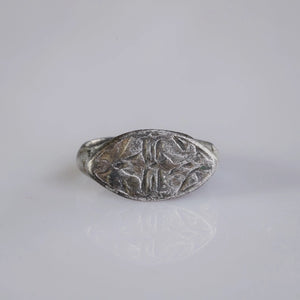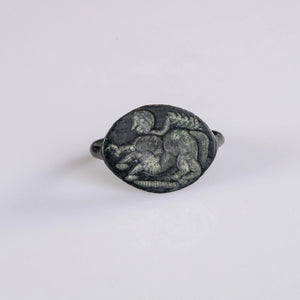Interesting facts
Rome: The Timeless Capital
The capital of Italy is Rome, a city that not only defines the nation’s political identity but also stands as a cradle of historical and cultural achievements that have shaped Western civilization. Since its designation as the capital of the newly unified Kingdom of Italy in 1871, Rome has flourished into a vital political hub while preserving its historical grandeur.
The Historical Tapestry of Rome
Rome’s essence is steeped in history, making it a living museum. Imagine wandering amidst the ruins of the Roman Forum or gazing at the Colosseum's towering silhouette. These landmarks aren't just mere attractions; they are vibrant testimonies to an era when Rome was the center of an expansive empire. Today, each corner of the city narrates stories from its epic past, a vivid illustration of how Rome influences art, law, politics, and culture even now.
Beneath these historical relics beats the vibrant heart of Rome’s everyday life. Quaint cafes offer their aromatic warmth, bustling markets echo with the vivacity of local chatter, and the alleyways, painted with a medley of colors, marry antiquity with daily life. Such an atmosphere presents a captivating fusion of the past and the present, making Rome unique.
A Center of Cultural Flourish
Culturally, Rome has been a beacon for artistic and intellectual pursuits throughout millennia. From the Renaissance artworks exhibited in the Vatican Museums to the lively street art that adorns its neighborhoods, Rome threads its historical traditions with modern cultural life seamlessly. At its core, the Vatican City—an enclave within Rome—exudes religious and cultural magnificence, showcasing priceless collections and hosting millions of visitors annually. For those enchanted by Rome's history, the Roman Silver Ring “Auriga” offers a tangible connection to the city's illustrious past. With its Red Jasper Intaglio depicting a chariot driven by a mouse, it encapsulates the elegance of Roman artistry, serving as a beautiful piece of history to incorporate into daily life.

Exploring the Neighborhoods
Beyond the majestic landmarks lie Rome’s bustling neighborhoods, each narrating its unique story. In Trastevere, the cobblestone streets and bohemian energy showcase a relaxed vibe, while Testaccio, once industrial, now pulsates with trendy dining hotspots and nightclubs. These diverse quarters embody how Rome's essence is ever-evolving yet deeply rooted in tradition.
Rome: The Political Epicenter
As the nerve center of Italy’s political sphere, Rome houses major governmental institutions, including the Parliament and the President's residence. Physically and symbolically, Rome stands as Italy’s primary locus of policy and governance, integral in shaping national and international discourse. Its political landscape reflects the historic layering of decisions and influences, a continuum that bridges ancient assemblies with state-of-the-art democracy.
Rome’s deep-rooted symbolism embodies the spirit of Italy itself—a nation built on resilience and cultural depth. Transforming from a republic to an imperial capital, then a papal fortress, and now a bustling modern metropolis, Rome’s trajectory mirrors Italy’s diverse chapters of human achievement.
Rome as a Global Influence
Rome’s enchanting image goes beyond its national prominence, inspiring creatives worldwide. Its iconic landscapes have fueled artistic revolutions and captured endless stories in film and literature. With an annual draw as one of the world’s most visited cities, Rome stands testament to its magnetic appeal, merging historical exploration with daily contemporary life.
Every day, Roman streets buzz with life—morning strolls in the Villa Borghese or the lively atmosphere at Campo de’ Fiori market become experiences that transcend beyond historical context, weaving warmth and vitality into the city’s essence.
Intriguingly, the Rome City Guide app enhances one's journey through this magnificent city. It’s your pocket companion, unraveling hidden gems such as lesser-known trattorias and niche archaeological sites, effectively bridging visitor curiosity with local insights.
Explore Timeless Artifacts
Discover NowLayers of history alive in Rome—from the Pantheon’s majesty to Renaissance splendor—offer a window into human resilience and creativity. This harmony of ages past and evolving, vibrant present depicts Rome as both an artful keeper and lively participant in the endless narrative of history.
Final Reflections on Rome
Rome’s political significance anchors modern Italy within legacies of governance that extend back to its empirical and religious roots. Despite this gravitas, simple pleasures like fresh espresso, lively streets, and diverse cultures paint a living, breathing portrait of Rome as a city rooted deeply in its own rhythm.
Lastly, Rome’s diverse population, migrating waves of heritage and innovation, blend richly into the city’s social fabric. Culinary delights, vibrant cultures, social exchanges—Rome remains a microcosm of urban dynamism epitomized globally.
Discovering Rome as Italy’s capital urges one to perceive a multifaceted character—an intertwining of historic overview, cultural exuberance, and political narrative. This complexity shapes an ongoing chronicle that never ceases to engage, stimulate, and enchant.
As the sun sets over the Tiber River and the city’s lights awaken, Rome casts its timeless magic upon all. It encourages endless exploration of the layers of time wrapped in beauty, anchoring Italy's heart and soul in every visitor and resident, sparking journies born of curiosity and renewed wonder.
Equipping Your Journey with History
For those charmed by Rome’s historical grandeur, the various historical artifacts serve as a beautiful artifact connecting the present to an illustrious past, perfectly captured in images showcasing Roman artistry.
Why does Rome continue to capture the imagination of visitors from around the world?
Rome continues to capture the imagination of visitors due to its rich tapestry of history, culture, and art that spans over millennia. From iconic landmarks like the Colosseum and the Vatican to its vibrant modern life filled with bustling markets and quaint cafes, Rome offers a unique blend of the past and present. This dynamic fusion of history with contemporary culture keeps the city ever-evolving yet profoundly rooted in tradition, making each visit a new journey filled with discovery and wonder.
Explore more exquisite artifacts and treasures at Aurora Antiqua, where past crafts are celebrated and integrated into modern elegance. Why does Rome continue to capture the imagination of visitors from around the world?
Why is Rome the capital of Italy?
Rome became the capital of Italy in 1871 due to its central location and historical significance as a cultural and political hub, symbolizing the unification of Italy.
What makes Rome historically significant?
Rome's historical significance lies in its legacy as the heart of the Roman Empire, influencing Western culture, law, and politics, with landmarks like the Colosseum and Roman Forum.
How can I explore Rome like a local?
Using tools like the Rome City Guide app can enhance your visit by revealing hidden gems and local favorites, from tucked-away trattorias to less crowded historic sites.




